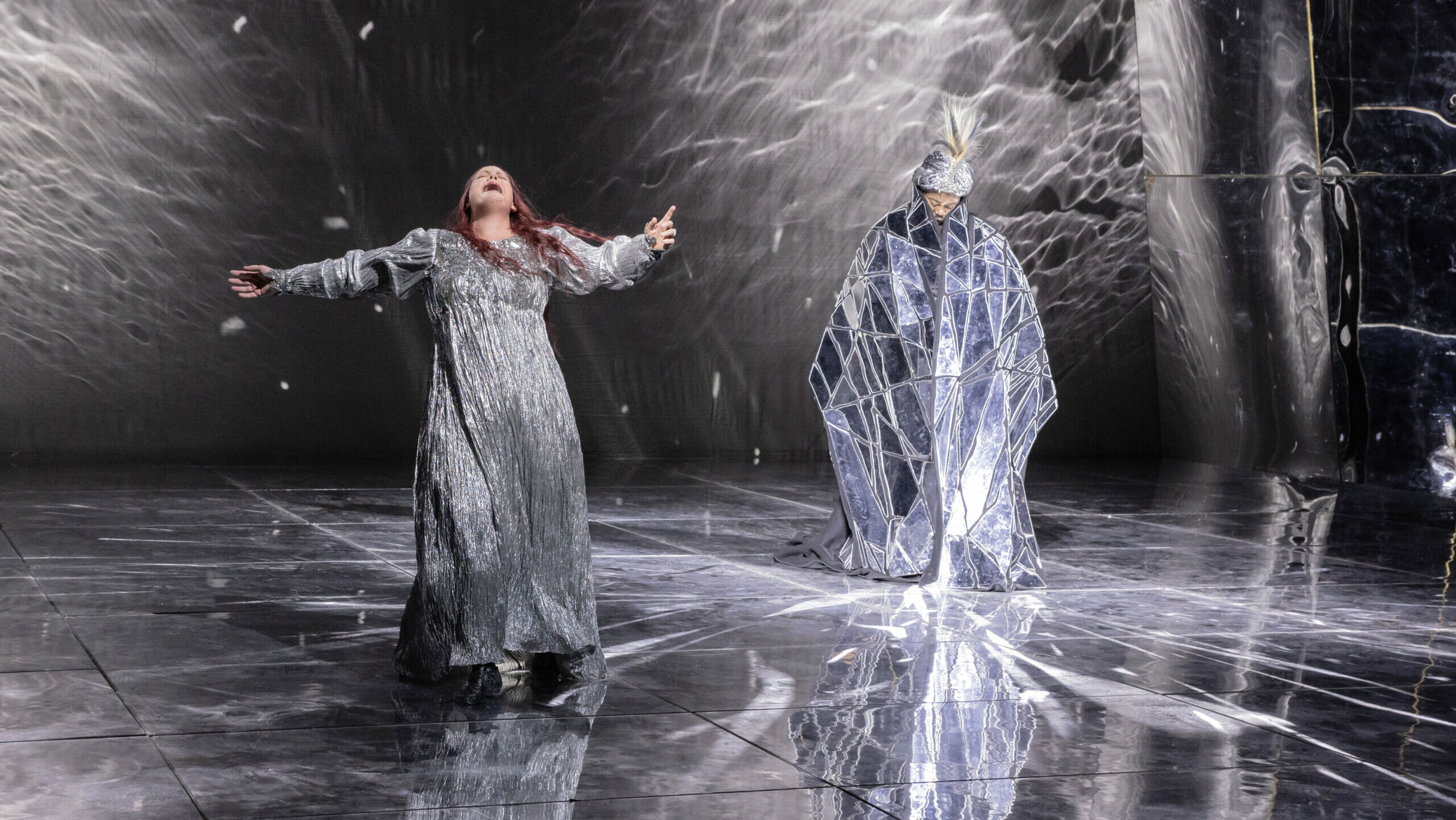
Just who, for example, is aware of the significance of the shadow? Where does the shadow go between when the Dyer’s Wife unburdens herself of it but before the Empress makes a final decision on how interested in it she is? Some sort of cloakroom, or perhaps Wendy Darling’s sock drawer? And if the characters can hear the falcon’s motif in the orchestra, what should we make of their relationship with the rest of the score, much less their relationship to the three-note overlord Keikobad who shows up in the orchestration and vocal lines alike?
This and much more befuddles and beguiles about Die Frau ohne Schatten, a work whose dense and antagonistic interplay of Hugo von Hofmannstahl’s words and Richard Strauss’s music keeps me coming back and which opened at the Met in a long awaited revival on Friday night. While none of these plot-related questions are answered easily (nor do any two die-hard opera fans seem to have quite the same explanations), for this opera uniquely we turn to the orchestra, a dramatic force itself, for clues.
But can conductor Yannick Nézet-Séguin offer any? At least in part, yes – but I had a glum feeling leaving Friday’s performance, and confirmed by a recent Tosca, that the days of counting on an interpretative through-line in the scores he conducts are probably over, ere they ever started. Friday’s performance delivered that symphonic quality that one sometimes expects from a Frau, in which singers pop in and out of the morass like instruments in a concerto, but without a particular sense of drive (and some cuts, especially in the Act II dialogue stretches), it wasn’t a reading that told much of a story. In an opera where the orchestra is called upon to function as a character, alternatively buoying and subsuming the people onstage, Nézet-Séguin seems content to be descriptive rather than active.
Sometimes this is useful – if the major fault of Herbert Wernicke’s massive and rigorous 2001 production is that it fails to match the score’s sense of cataclysm, the frightful din of, say, the Act II finale in which an entire dwelling is subsumed by an earthquake was well suggested by the orchestra’s shaking and rattling. Indeed, Nézet-Séguin has become increasingly attentive to big moments like these even as he finally gets a handle on not drowning out his singers, but these stretches of maintained tension and tone come inconsistently and often don’t relate to each other in a narrative way. Friday’s performance never outright lagged, but it only very rarely had me on the edge of my seat either. It’s good enough for government work, I guess.
Since Yannick isn’t much of a storyteller, then I suppose I should try my hand with the broad strokes; the Messenger (Ryan Speedo Green, articulating pointedly and with firm vehemence) informs the Nurse (Nina Stemme) that her ward, the divine-in-the-form-of-human Empress (Elza van den Heever), has failed to acquire a shadow (ie. The ability to bear children) and that as a result, her father, Keikobad, will turn her husband, the human Emperor (Russell Thomas) to stone if she does not acquire one in three days. The Emperor’s Falcon, here voiced by a neatly articulating Jessica Faselt and acrobatically danced onstage by Scott Weber, pipes in every so often to remind them of the problem at hand.
The Nurse’s part is an exceedingly texty one that sits awkwardly towards the lowest realms of the soprano range. While it may have seemed like a more practical option for Stemme, who can no longer handle the exposed Bs and Cs of the Dyer’s Wife, in practice it’s an awkward fit that often has her chopping up and gurgling phrases around her lower register break. And while the meat of the role resides in the middle of Stemme’s Stimme which retains a garnet warmth, the long narrative digressions only highlight that it’s not a timbre that has ever been particularly exciting and the lack of archness or zeal with the text make it nothing more than a mostly secure and minimally memorable performance of a devilishly ungrateful role.
Her mistress, however, betrays a happier situation — Elza van den Heever, in the title role, is a winning Empress. When she sets upon her quest for a shadow, she has just woken up in her Southeastern Islands pleasure palace (Trouble in Tahiti?) and alights onstage to a dizzyingly intricate and moody aria that licks up to a D as she reminisces about her younger days incarnate as a sexy gazelle roaming the earth. This role heralds something of a bone fide arrival for van den Heever whose highly distinctive, piercing, overtone-heavy timbre has rang out to strong effect in several other roles since her 2012 debut but here offers a perfect match of supernatural sound to an otherworldly character which she inflects with a breezy, puppyish earnestness.
The Emperor off hunting for a few days, the ladies surge to the domain of the grimy hoi polloi, specifically chez Barak (Michael Volle), a dyer, and his Wife (Lise Lindstrom) where the vibes are terrible and the Wife, seemingly both unfertile and uninterested, is a prime target for the shadow snatchers. Barak, in many ways, is the opera’s musical heart and Nézet-Séguin’s singular insight into the score is found in the uniform richness with which he depicts the Dyer’s frustrated longing for his wife. Volle approaches the music with a Lieder singer’s clarity belied by a simmering dramatic slant, only occasionally losing steam in moments where the character’s resignation drags the part below what he can comfortably sustain at a high volume.
The even-temperedness of Volle’s sound was a needed counter for Lindstrom’s squallier one. There’s nothing new about a Dyer’s Wife with an edge, in singing or characterization, but while Lindstrom can soften her physical presence with the evolving conflict, she never managed to soften her voice which was clear, cutting, and consonant-free at best and glottalized shrieking at worst.
The Empress and the Nurse set up shop in the hut for three days as servants to sow antipathy between the Dyer and his Wife and cajole the shadow from her with fantastical promises and visions (such as the handsomely voiced trio of maids, Susanne Burgess, Kathryn Henry, and Hannah Ludwig, sounding more polished than the gruff male trio of night watchmen Jeongcheol Cha, Paul Corona, and Brian Major), but this proves to be a morally fraught undertaking. The Empress expresses this double bind in a monologue that revealed more amplitude in van den Heever’s middle voice than expected as she weighs the choices.
Meanwhile, the Emperor spies his wife seeking around and suspects something untoward. While the Emperor has shorter monologues in the first and final acts, it’s this Act II scene that showed Russell Thomas in such superb control. While his more blanched sound doesn’t necessarily imply affinity for the Heldentenor requirements of the Emperor, here his burly instrument was in top form riding the upper passaggio bareback to thrilling effect.
The Empress and the Nurse succeed in unhitching the Wife from her shadow, but when Barak finds out, he rushes at her in fury with a sword before an act of Keikobad (an earthquake in the libretto, here the gradually empathizing Empress staying his hand) divides them before they are put through their moral paces in the final act.
It’s this final act that sees the Emperor turned to stone, a literal cold and hard fact that the Empress confronts in an anguished spoken monologue. By this point on Friday, things had fully heated up and the gradual rumble revealing the petrified Emperor wearing a blinding cape covered in shards of mirror, the production’s overriding visual motif, was both visually and audibly terrifying. van den Heever hashed this out with a real sense of fatigued urgency, agonizing over the various temptations to accept the shadow and save the Emperor, before collapsing into a whispered and exasperated “Ich will nicht.” (Which, for some reason, we’re still translating as “I will not” rather than something like “I do not want to.”)
The Emperor sheds his stony cloak, Keikobad finally placated by the Empress’s demonstrated growth, the couples are gradually brought together, shadows rain down (alongside the voices of the unborn, whose role in this opera I’ve spilt ink on here), and Volle-as-Barak sets us furiously into a concluding quartet that celebrates devotion to family and children. The final moments of the opera have been known to leave me emotional, and while they didn’t here, the sense of overwhelm at the undertaking is still something rare and moving in and of itself. The 360-degree experience of the Met’s Frau, with voices pouring out from the Domes, onstage and the pit, the sets’ alternating austere mirror box and industrialized hovel connected by the eye-popping use of the stage elevator, and the orchestra’s seething below is an experience enough to redeem your faith in opera, if not in humanity as a whole.
Wernicke’s production, highly effective though fixated as it is on the contrast between the hyper-specific world of labor and the vaguer, vainer one of privilege, is probably far enough removed from our 2024 sensibilities around those ideas that it merits an update (or at the very least a spritz of Windex), but it makes its points cleanly as directed by J. Knighten Smith.
I once had a professor who described his delight in Mary Shelley’s Frankenstein, calling it a “machine for generating different interpretations.” The same can be said about Die Frau ohne Schatten, a work so difficult and so ambitious that can transcend even an imperfect performance. This revival isn’t a perfect one, but as a machine for interpretation (and a machine in its own right), it’s in damn good working order.
Photos: Evan Zimmerman
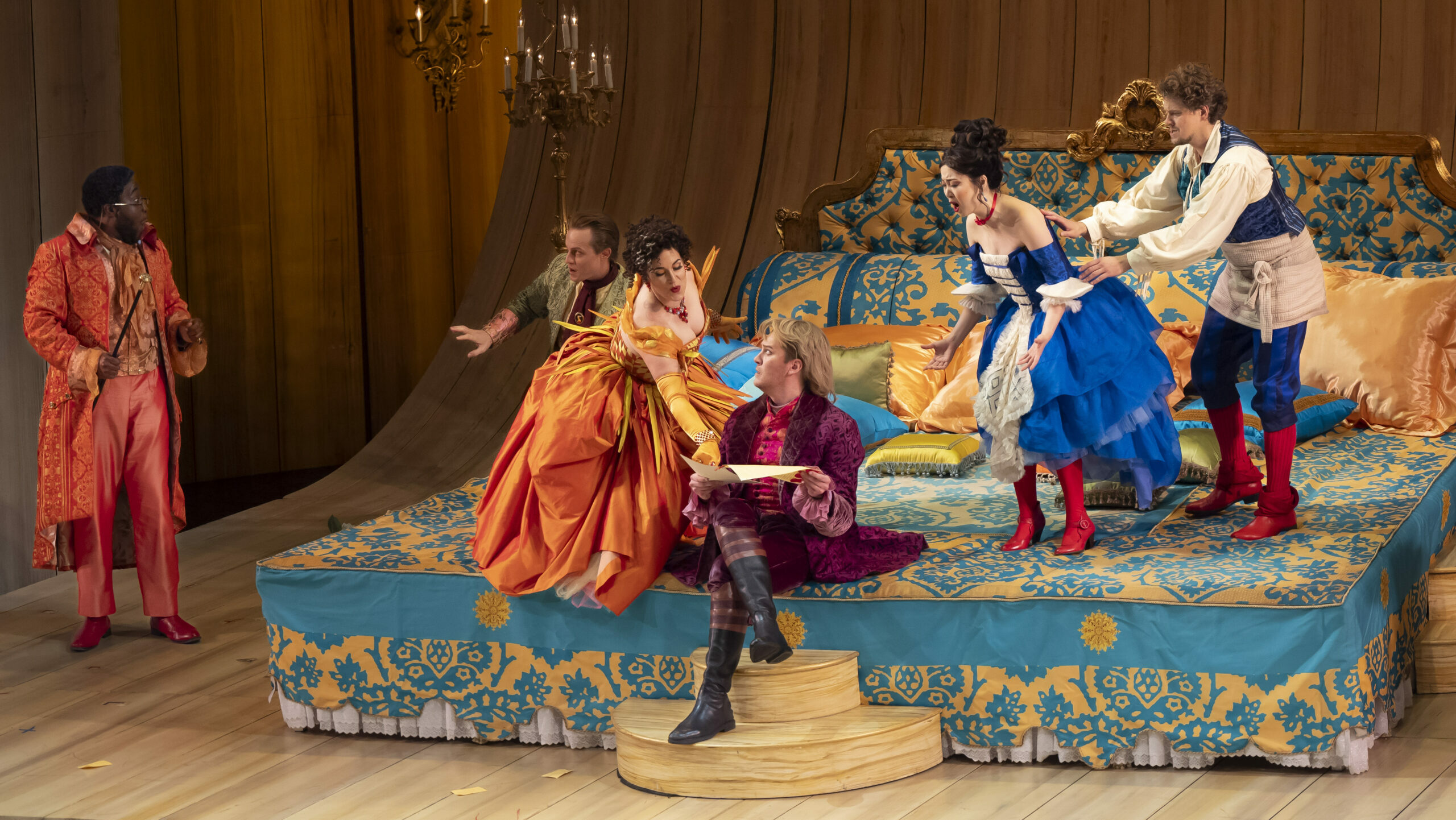
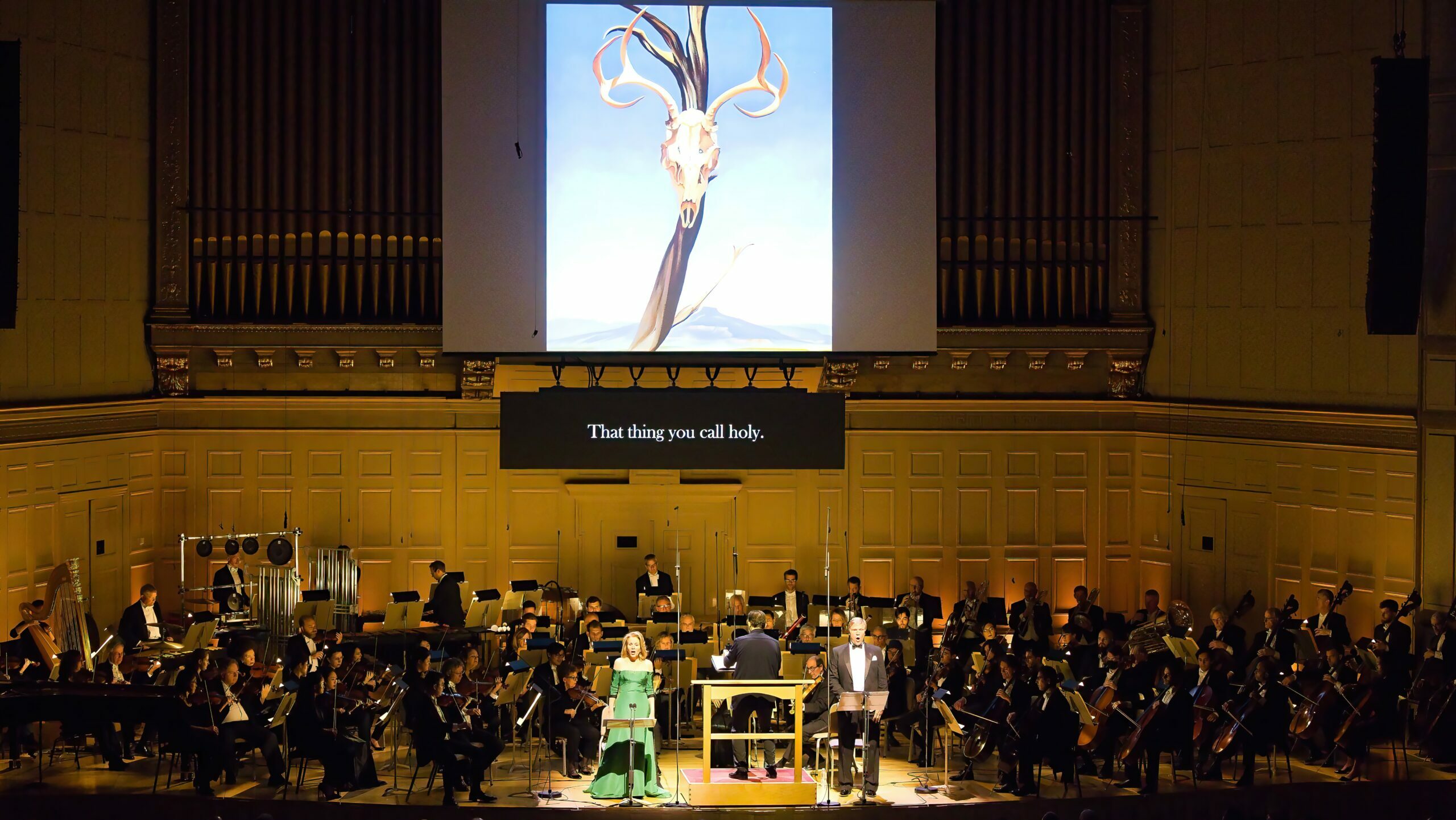
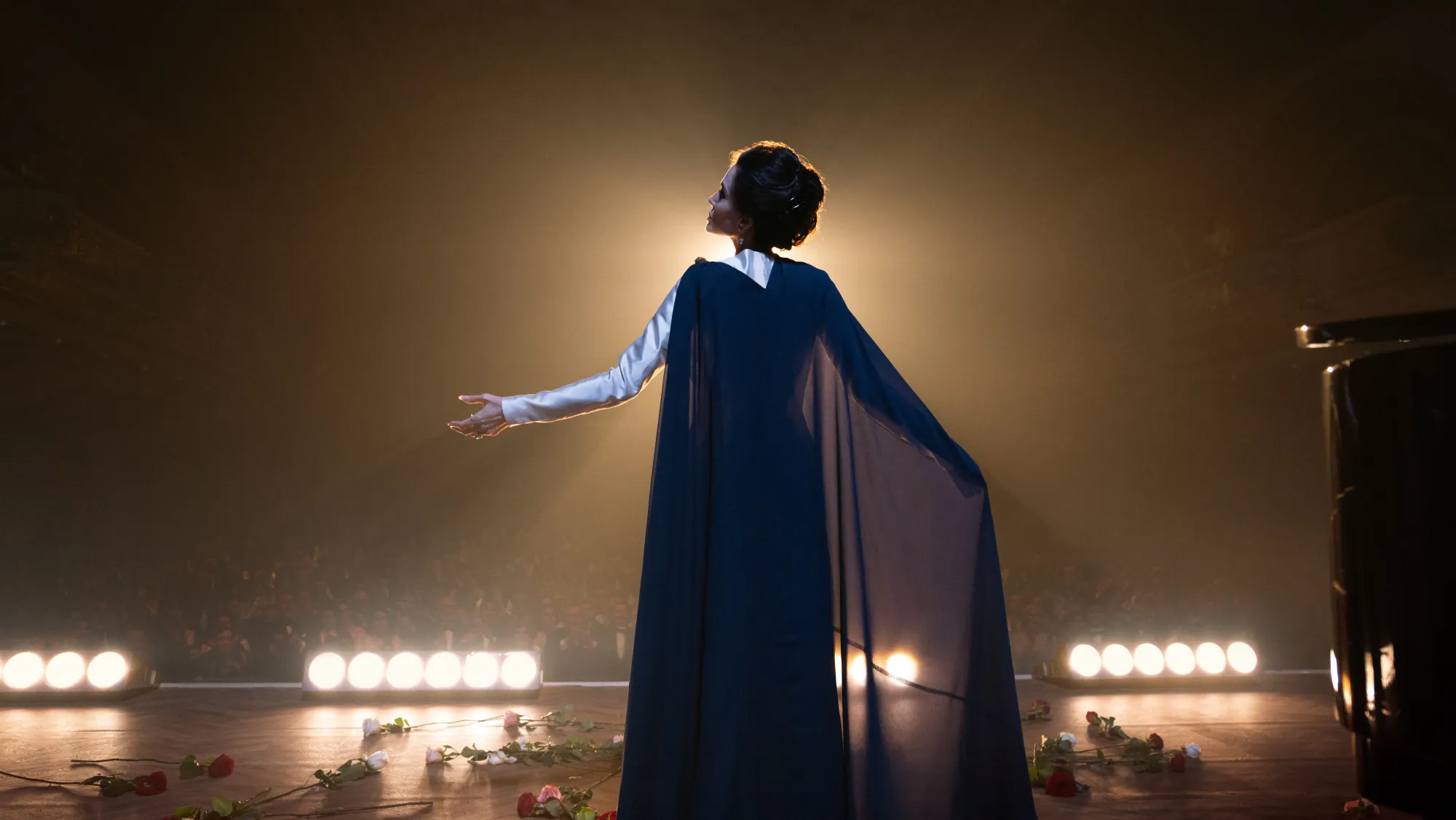
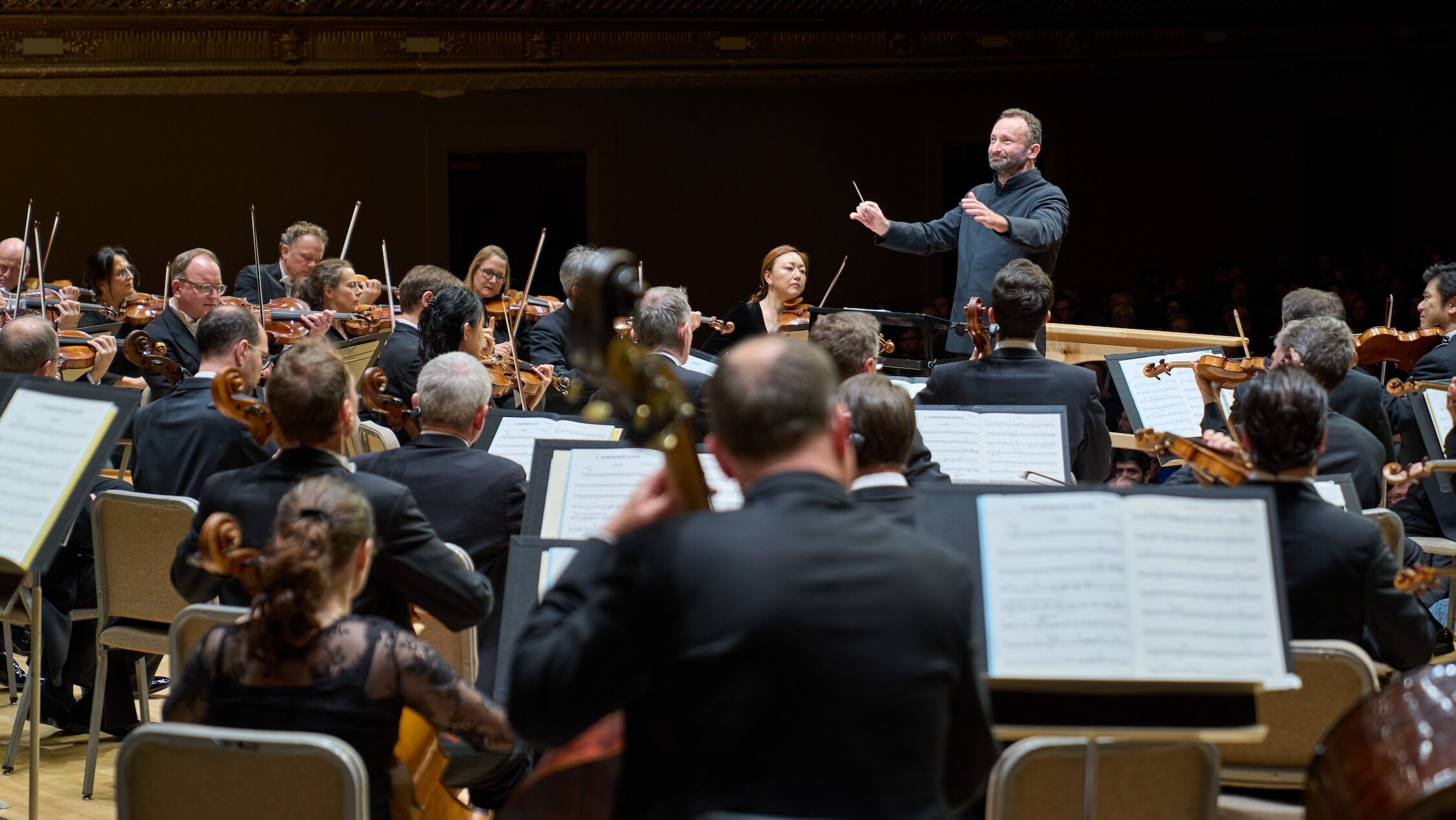
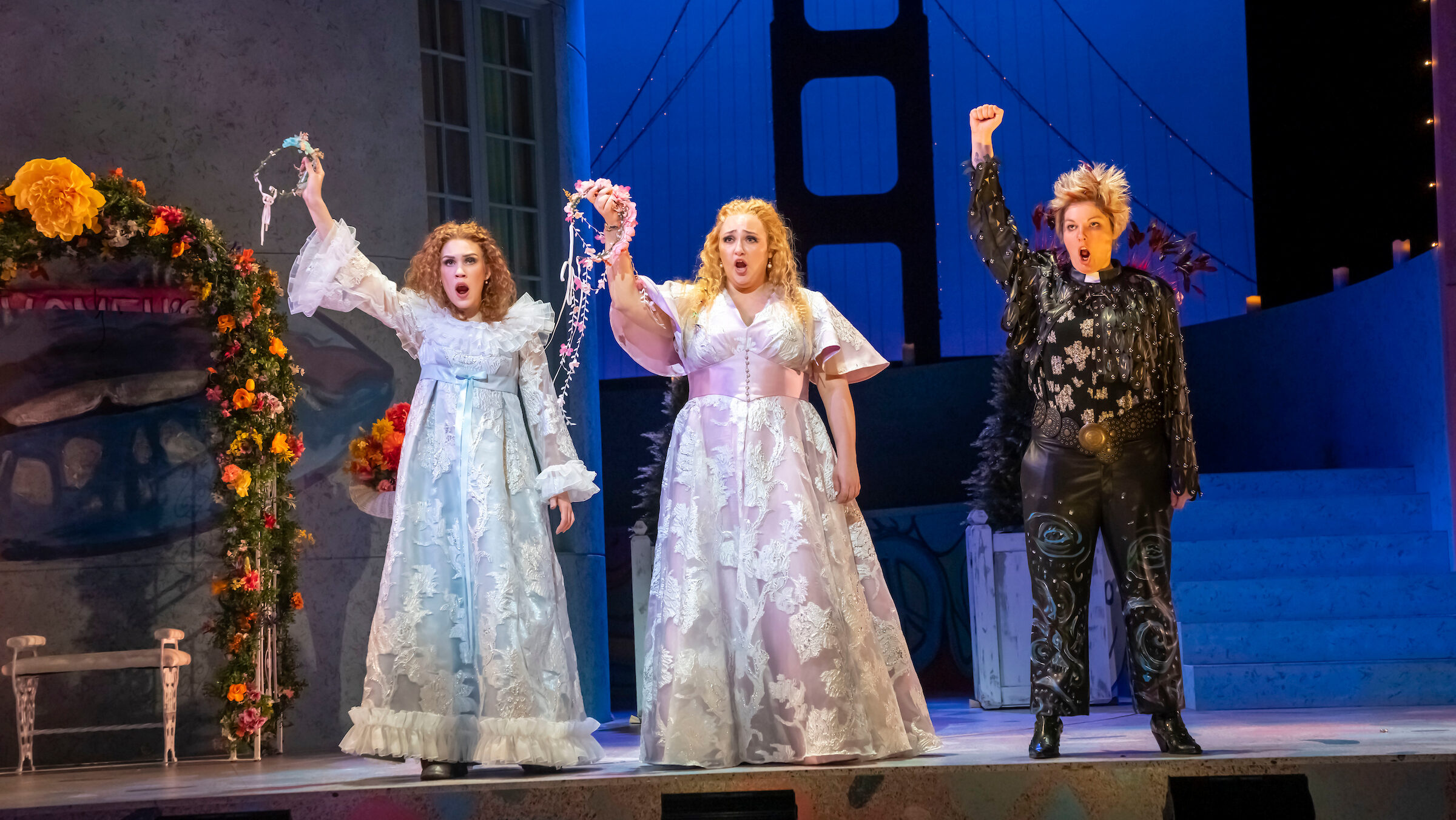
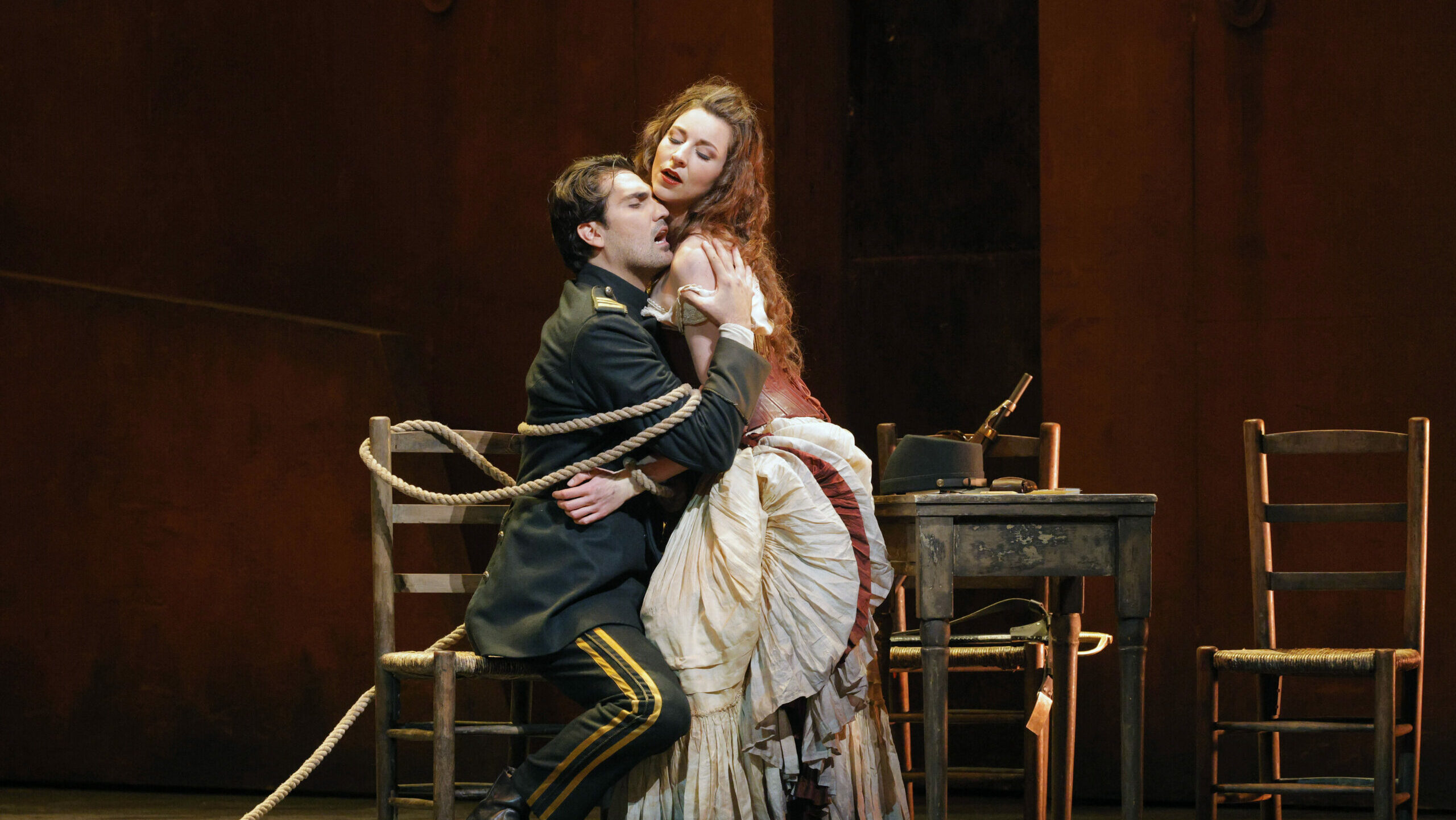


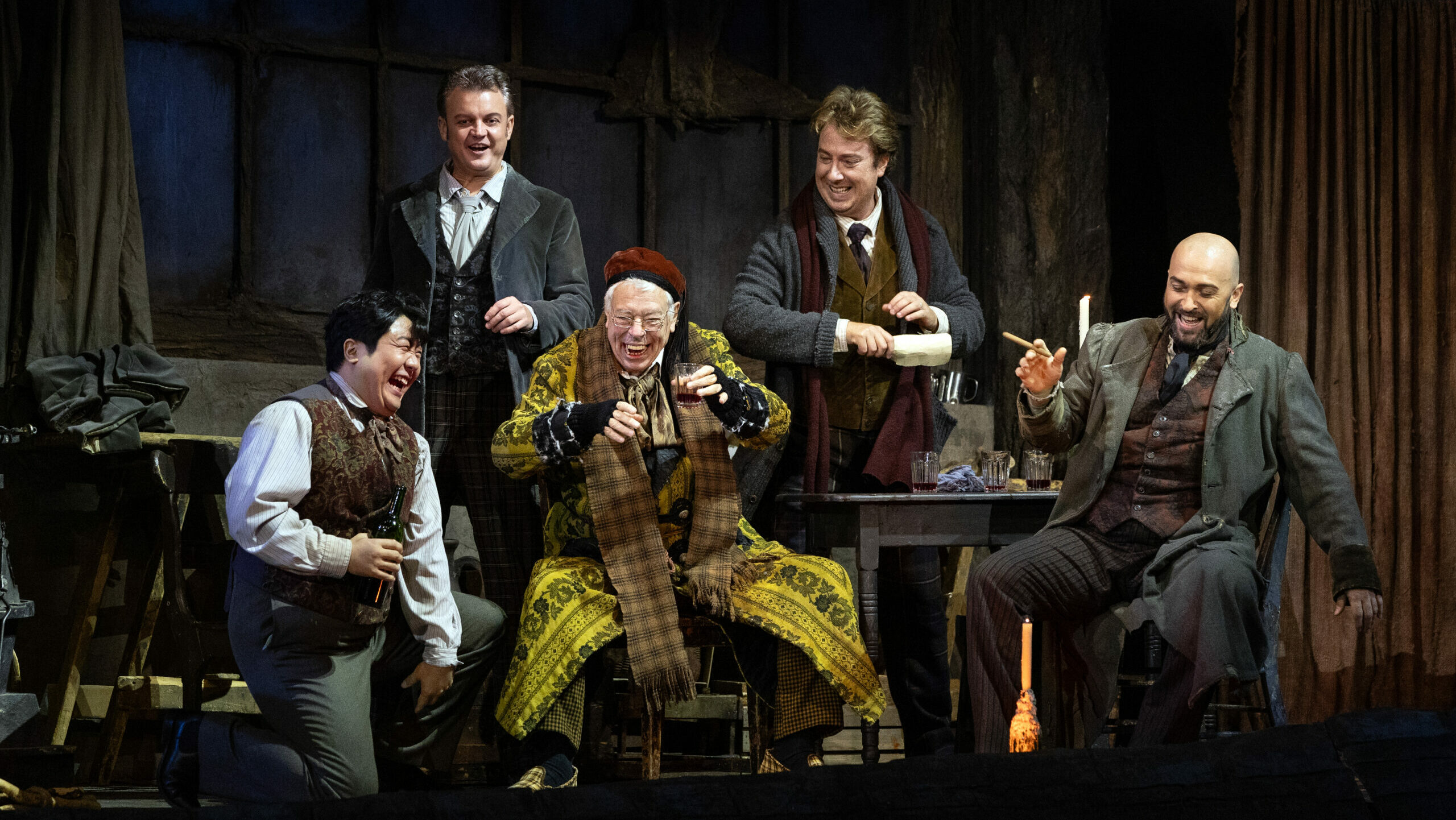
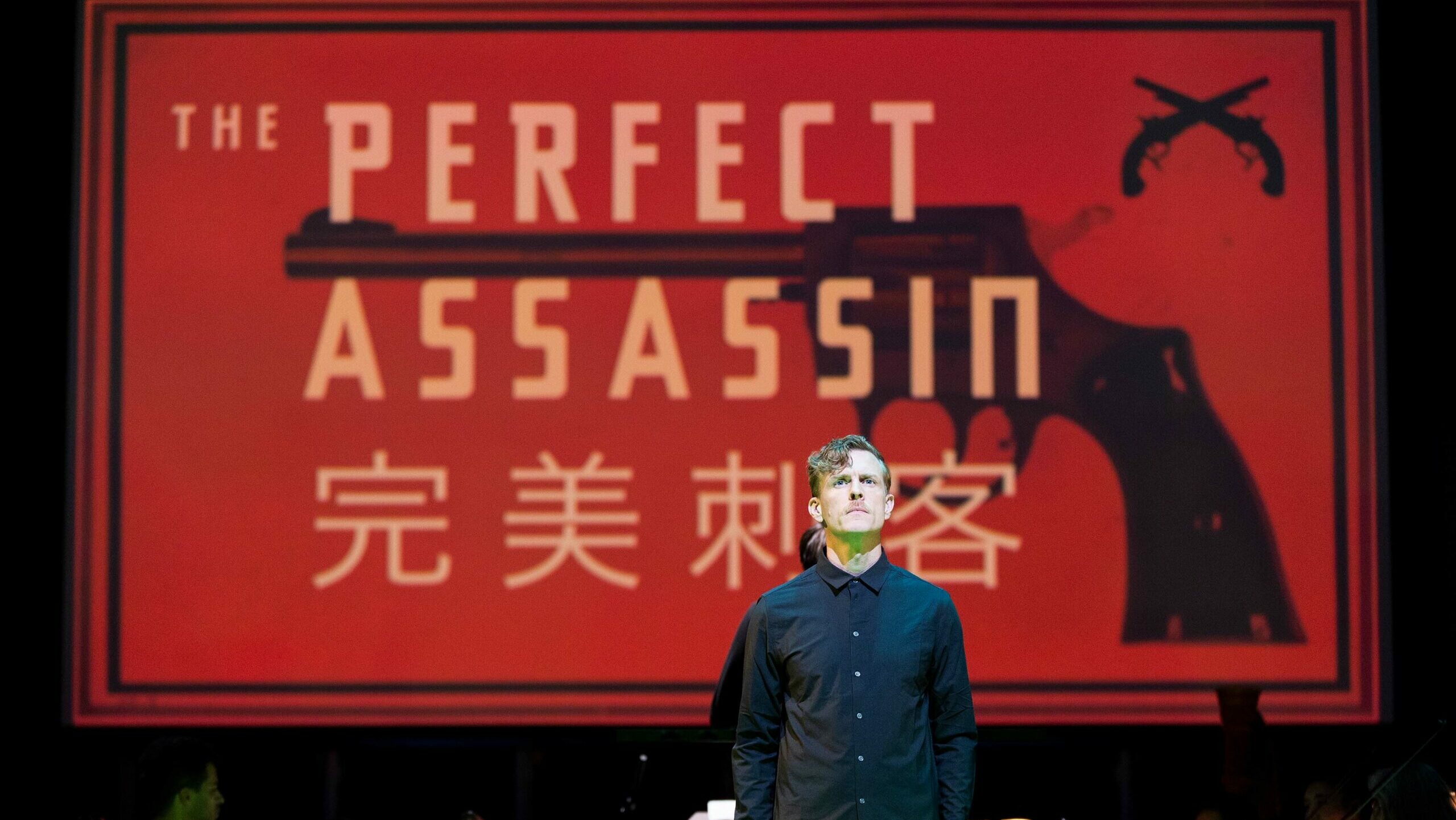
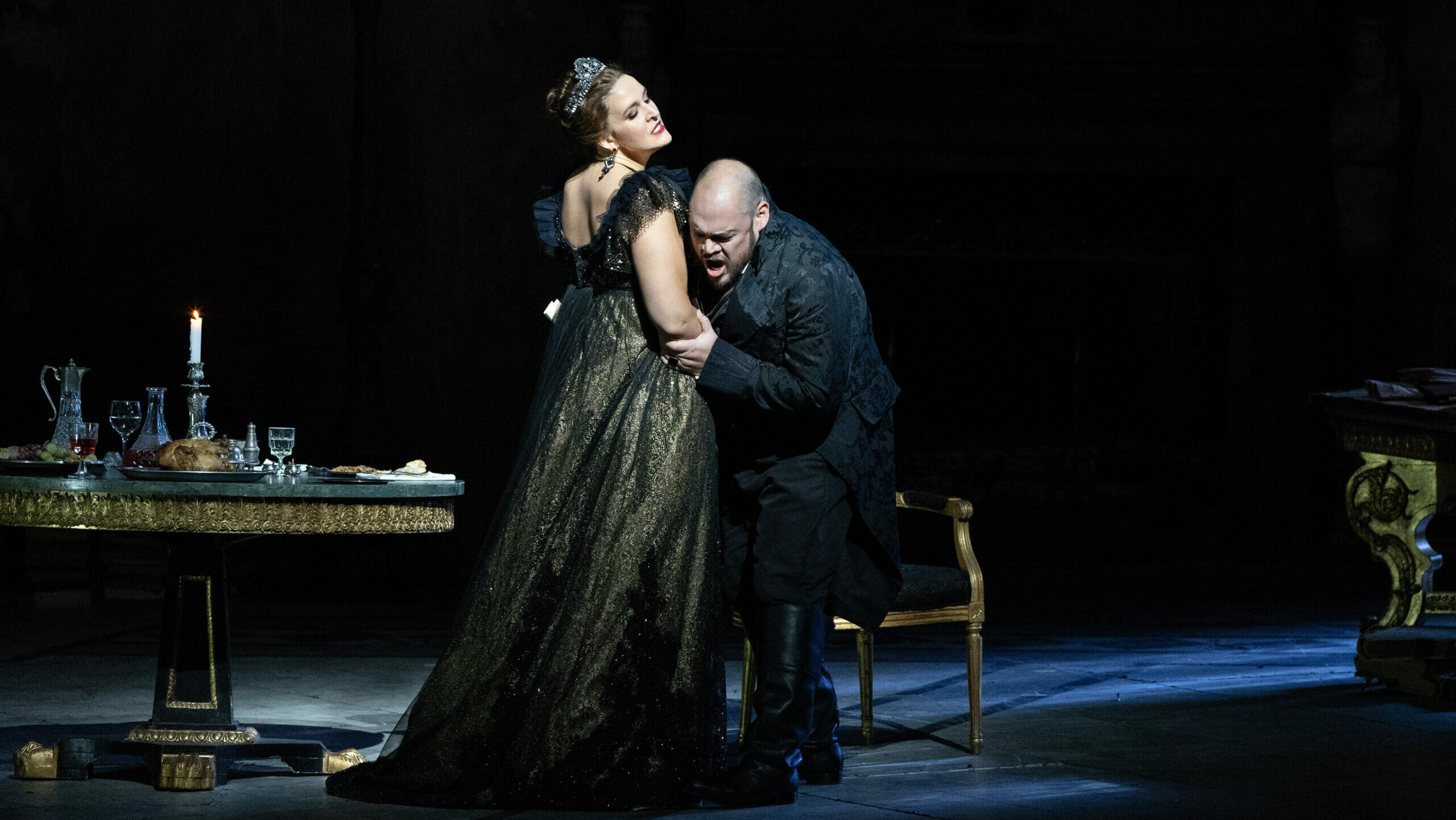

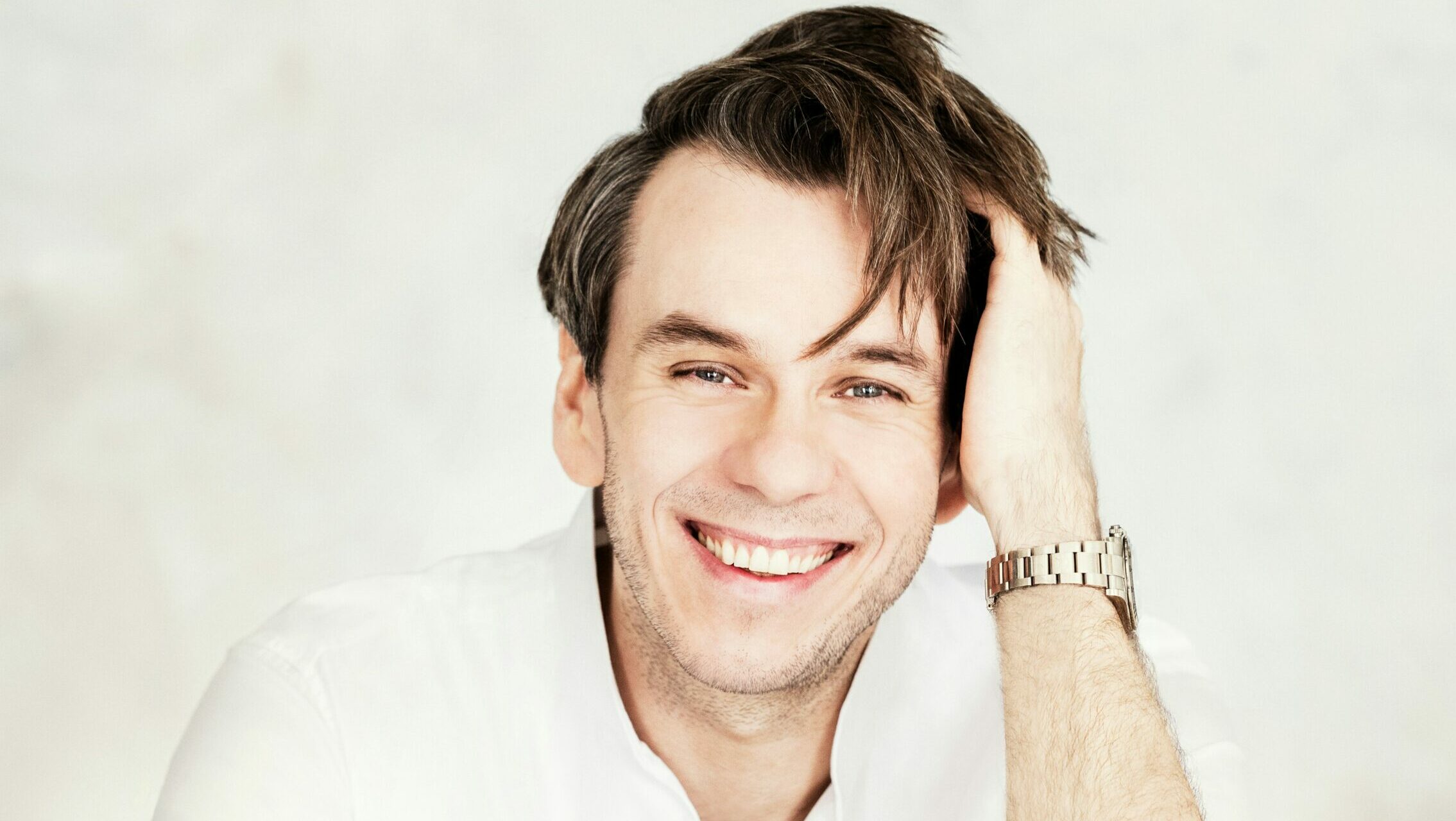
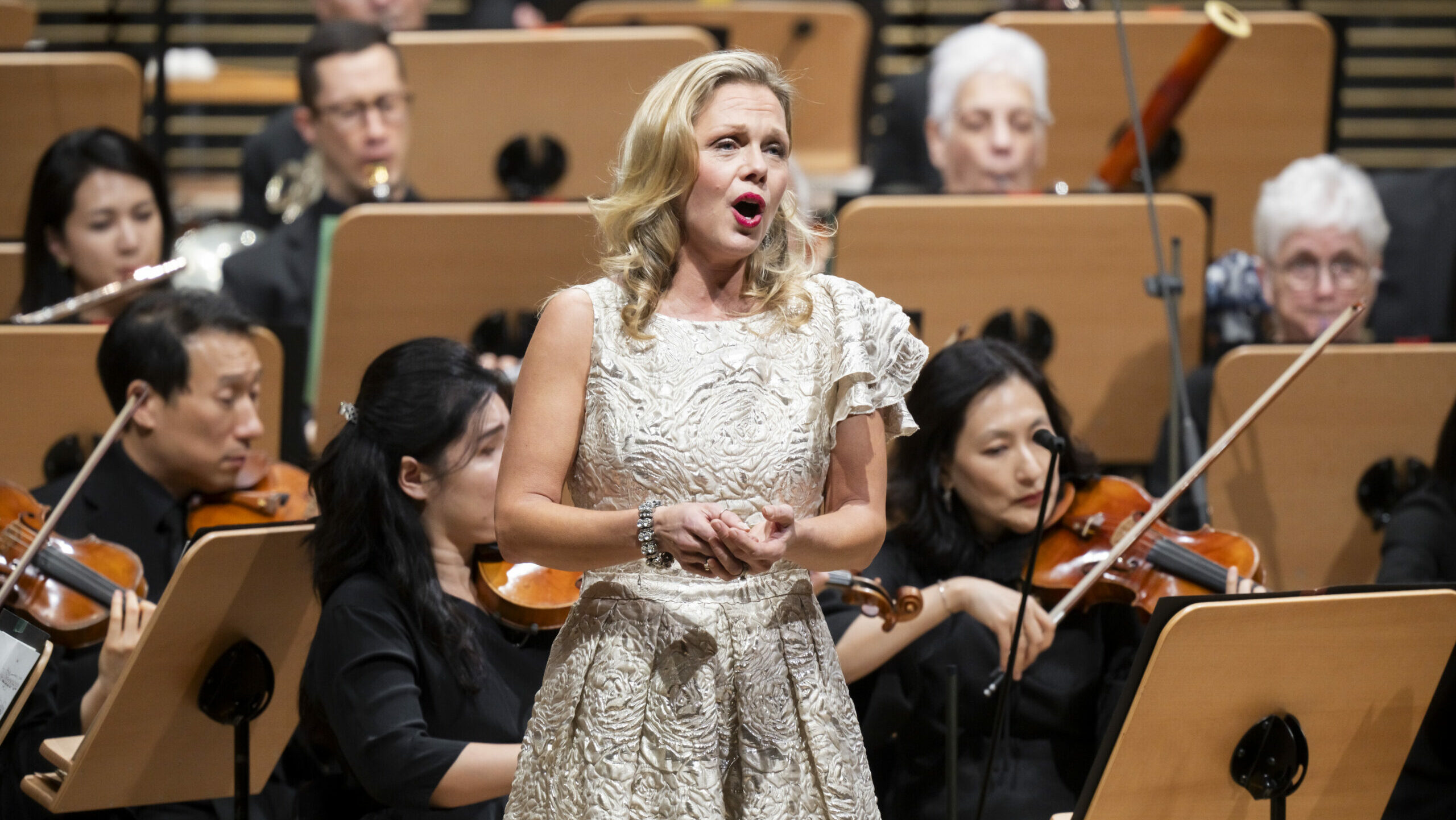
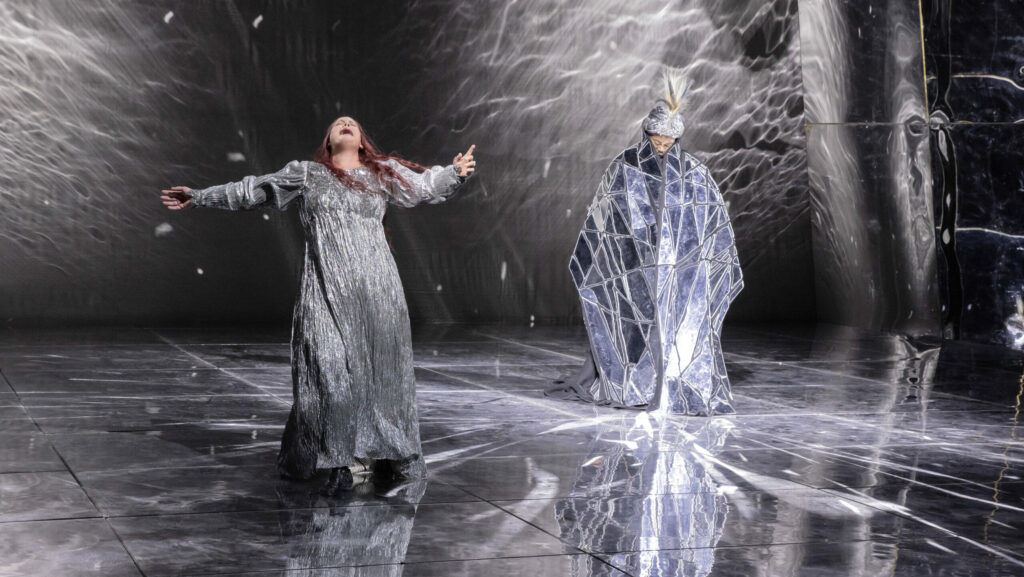
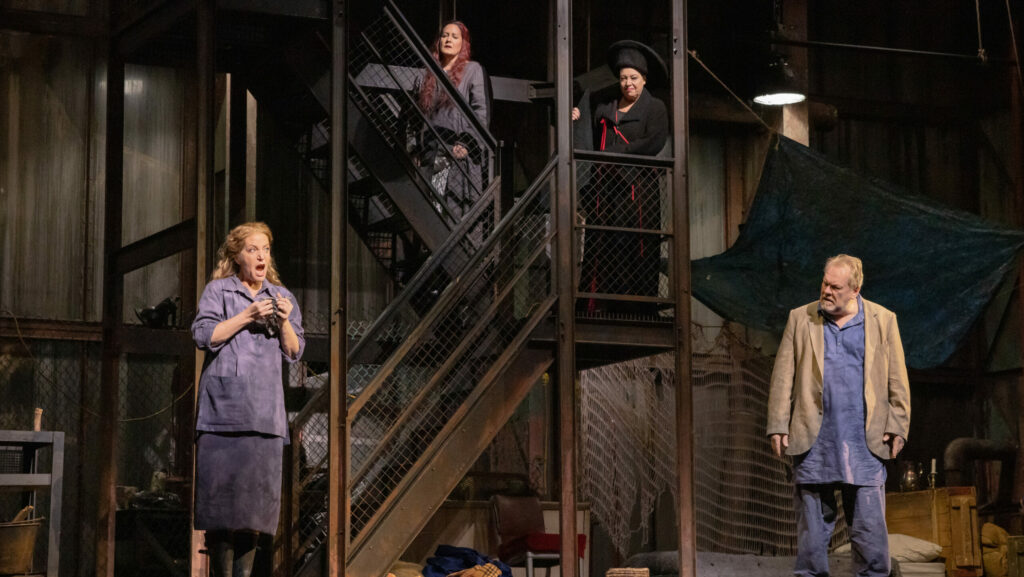
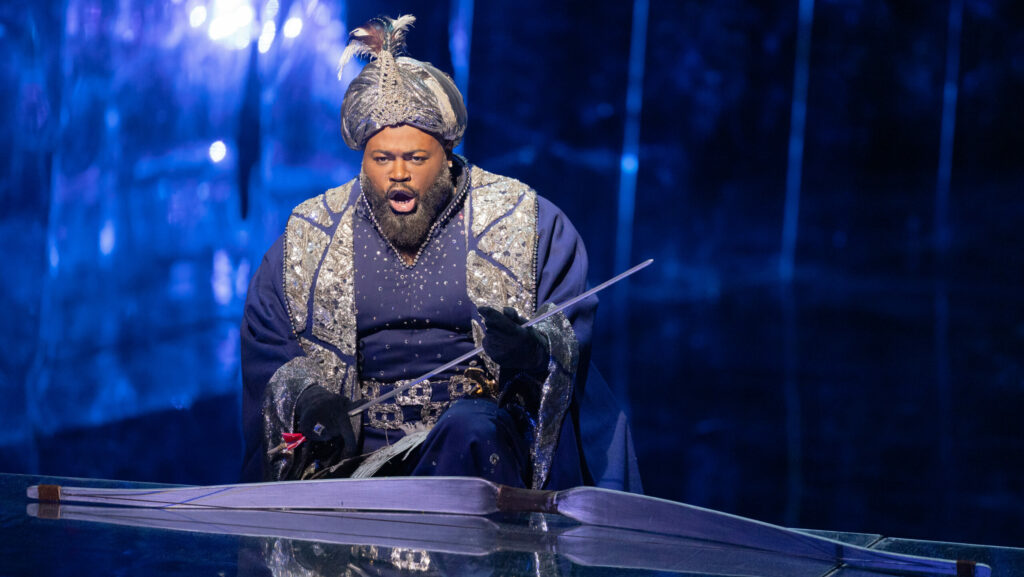
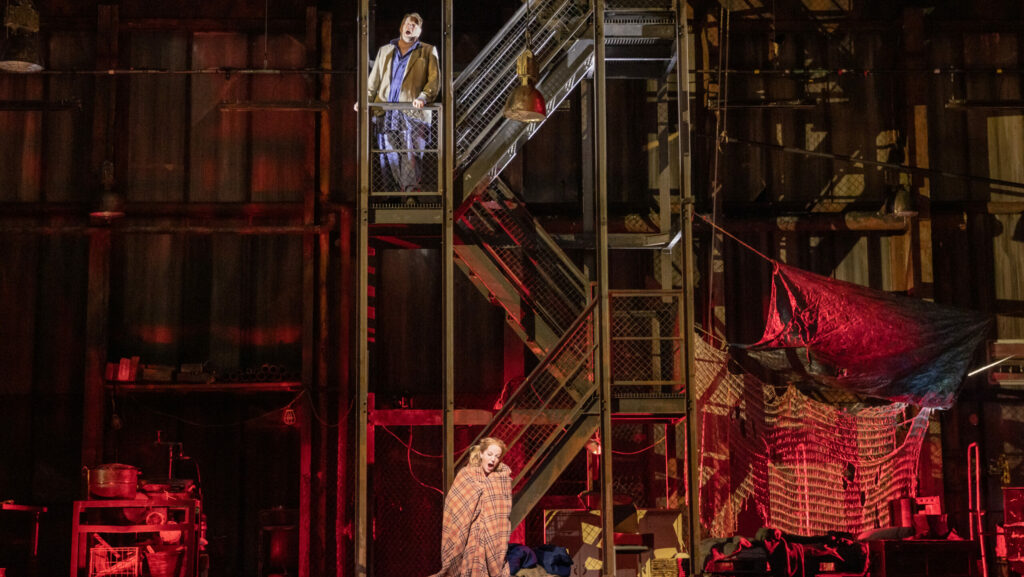

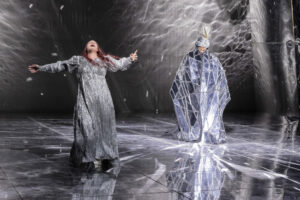
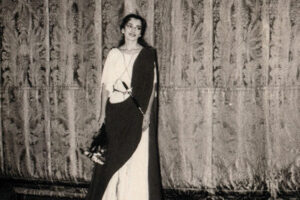



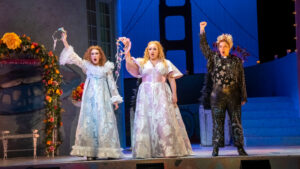
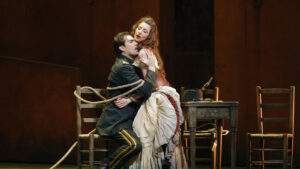


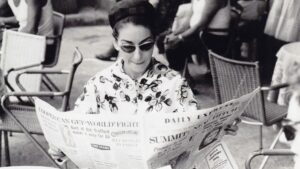


Comments